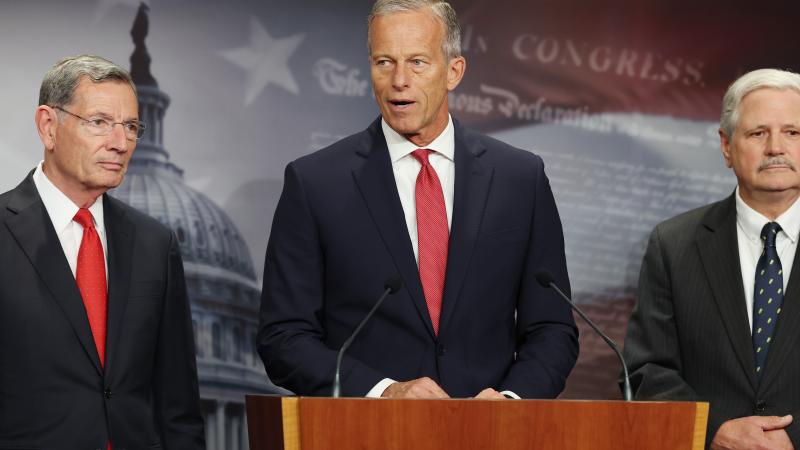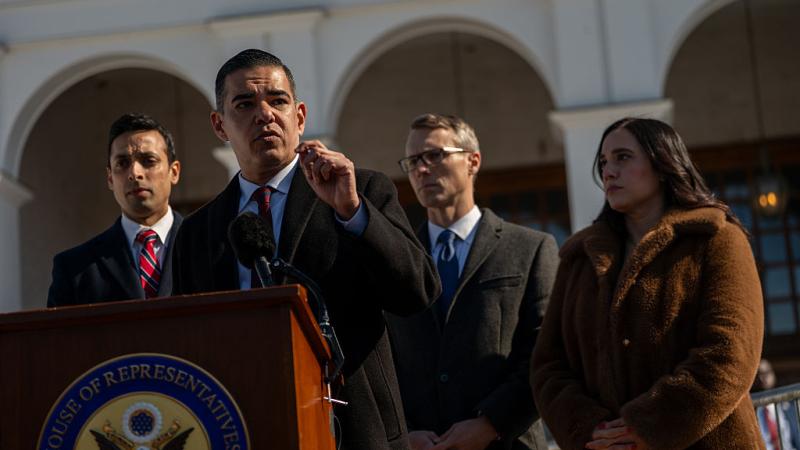Virginia’s Youngkin to leave climate compact, with support from small business
The multistate compact limits the amount of carbon an entity can emit and the amount of emissions in the entire state.
Small businesses and Republican leadership are applauding Republican Governor-elect Glenn Youngkin’s plan to get Virginia out of a multi-state climate compact that regulates carbon emissions.
In a meeting with the Hampton Roads Chamber of Commerce this week, Youngkin pledged to use his executive authority to leave the Regional Greenhouse Gas Initiative. The initiative limits the amount of carbon an entity can emit and the amount of emissions in the entire state. A company can buy carbon credits from other companies that emit less carbon than allotted, but states that participate in the initiative promise to gradually reduce the carbon footprint over the years.
An entity that does not follow the regulations could face fines and some critics have labeled the policy a de facto tax. The State Corporations Commission estimated that between 2019 and 2043, RGGI could cost $5.9 billion and it could cost the average residential customer between $84 and $144 annually. Under Gov. Ralph Northam’s leadership, the commonwealth joined the compact in 2020.
Nicole Riley, the Virginia director for the National Federation of Independent Business, said the governor-elect’s plan to leave RGGI would benefit small businesses. NFIB is the largest small business association in the country.
“Virginia’s small businesses are managing several obstacles such as the labor shortage and supply chain disruptions,” Riley said in a statement. “Small business owners need lawmakers to enact policies that promote job growth, not deter it, as they work on recovering their businesses to pre-crisis levels. By removing Virginia from the Regional Greenhouse Gas Initiative, Governor-elect Glenn Youngkin is sparing small business owners from an increased cost in their electric bills and other expenses they simply cannot afford right now. Small business owners thank Gov.-elect Glenn Youngkin for taking this important step.”
Youngkin’s plan also received support from Republican House leadership. Republicans in both chambers of the General Assembly opposed Virginia joining the compact in the first place.
"Virginia's participation in RGGI was premised on the fact that it showed 'leadership' in combating climate change,” Speaker-designee Todd Gilbert, R-Shenandoah, said in a statement. “The cost of RGGI to Virginia families and businesses is very real, while the impact of RGGI on climate change is negligible at best — a fact that was documented well before outgoing Governor Northam opted the Commonwealth into the pact. In fact, Virginia was reducing carbon emissions from power plants at a rate comparable to RGGI states before joining the cap and trade group.”
Youngkin’s approach to energy is an overall departure from the Northam Administration and the previous McAuliffe administration. Under a current policy, Dominion Energy is required to stop using all carbon-emitting energy sources by 2045 and Appalachian Power is required to do the same by 2045. Youngkin, however, has criticized this policy and said he plans to have a diversified energy sector.














